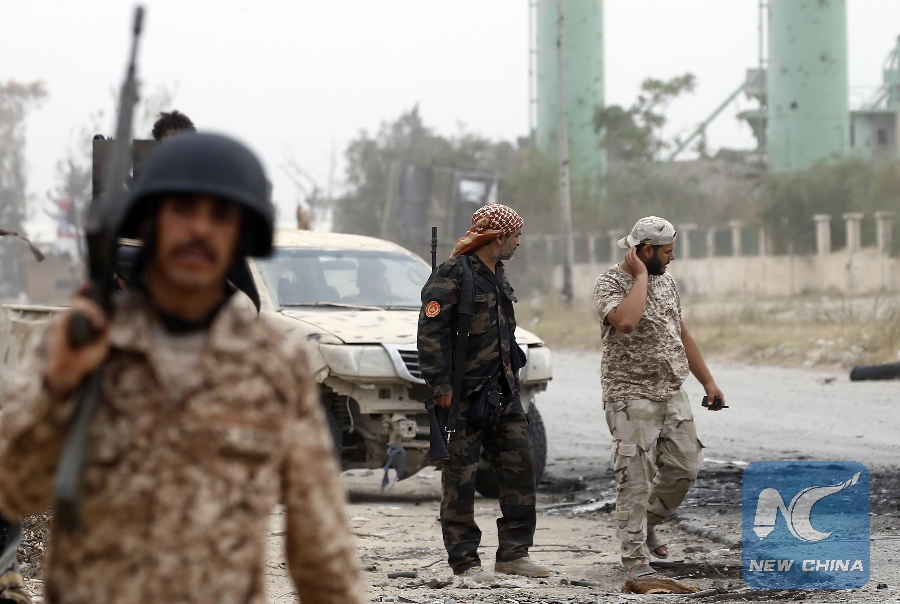
Fighters loyal to the Libyan internationally-recognised Government of National Accord (GNA) check the site where a mortar hit during clashes against forces loyal to strongman Khalifa Haftar, on May 21, 2019 in the Salah al-Din area south of the Libyan capital Tripoli. (Xinhua/AFP)
UNITED NATIONS, May 21 (Xinhua) -- The top UN envoy for Libya warned on Tuesday that the Arab country is on the verge of civil war that could lead to permanent division.
"Libya is on the verge of descending into a civil war, which could lead to the permanent division of the country. The damage already done will take years to mend, and that's only if the war is ended now," Ghassan Salame, the UN secretary-general's special representative for Libya, told the Security Council in a briefing.
"This is the report whose delivery I have spent the nearly last two years trying to avoid. Forty-eight days into the attack on Tripoli by Gen. Haftar's forces, there has already been too much death and destruction," he said, referring to the new offensive on the Libyan capital launched on April 4 by the self-proclaimed Libyan National Army led by Gen. Khalifa Haftar.
The consequences and the risks of the conflict are already painfully clear, especially for the Libyan people: over 460 dead, 29 of them civilians; over 2,400 injured, the majority of them civilians; over 75,000 people forced from their homes, all of them civilians. Over half of the displaced are women and children, said Salame.
Humanitarian actors estimate that over 100,000 men, women and children remain trapped in immediate front-line areas, with over 400,000 more in areas directly impacted by the clashes, he said.
While the conditions for migrants and refugees in Libya were already dire prior to the conflict, these conditions have now gone from bad to worse, he said, adding nearly 3,400 refugees and migrants are trapped in detention centers exposed to, or in close proximity to the fighting.
The UN humanitarian agencies have been working around the clock to transfer the most vulnerable from the conflict-affected areas to safer locations, he said.

